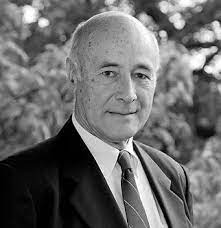
Professor Joseph S. Nye, Jr.
Contributing Author
The Joseph S. Nye, J. Program on The Future of Economic Powers & Geoeconomics Program (EP&G)
Joseph S. Nye, Jr. is a professor at Harvard University and author of Do Morals Matter? Presidents and Foreign Policy from FDR to Trump. He is a University Distinguished Service Professor, Emeritus, and former Dean of Harvard’s Kennedy School of Government. He received his Bachelor’s degree summa cum laude from Princeton University, won a Rhodes Scholarship to Oxford University, and earned a Ph.D. in Political Science from Harvard. He has served as Assistant Secretary of Defense for International Security Affairs, Chair of the National Intelligence Council, and Deputy Under-Secretary of State for Security Assistance, Science and Technology.
His most recent books include The Power to Lead; The Future of Power; Presidential Leadership and the Creation of the American Era; and Is the American Century Over. He is a fellow of the American Academy of Arts and Sciences, the British Academy, and the American Academy of Diplomacy. A recent survey ranked him as the most influential scholar on American foreign policy. In 2011, Foreign Policy named him one of the top 100 Global Thinkers.
Copyright: Project Syndicate, 2019.

Dr. Michael Greenwald
Senior Non-Resident Fellow
The Future of Money and Currency Program (FMC)
Michael is responsible for managing a number of Tiedemann’s client relationships and overseeing their advisors to provide solutions that address the challenges of stewardship of wealth over generations. As a member of the firm’s business development and strategy team, he is a referral resource for attorneys and accountants. Michael is also Director of Digital Asset Education, in which role he provides education across the firm on issues related to digital assets and blockchain technology.
Prior to 2017, Michael worked in senior roles within the United States Treasury working with Africa and Europe. He served as a financial diplomat in the Middle East spanning the tenures of U.S. Treasury Secretaries Geithner, Lew, and Mnuchin. Greenwald initially served as the United States Treasury Policy Advisor for Europe. In this role, he was appointed head of the United States Delegation to the Committee of Experts on the Evaluation of Anti-Money Laundering Measures and the Financing of Terrorism before the Council of Europe in Strasbourg, France. Greenwald was part of the U.S. Treasury team that crafted U.S. sanctions against Russia, the largest U.S. sanctions program to date, and negotiated similar sanctions by Europe. Between 2015-2017, he served as the first United States Treasury Attaché appointed to Qatar and Kuwait and opened the Treasury Department’s office in Doha, Qatar. He also served in a variety of counterterrorism roles in the U.S. Intelligence Community and in the Office of General Council at the U.S Treasury. Greenwald worked closely with the National Security Council at the White House tackling issues and crafting sanctions programs related to countering ISIS, Al-Qaeda, Hezbollah, Hamas, Iran, Ukraine/Russia, Syria, and North Korea.
Michael is a frequent speaker, writer and commentator on international security, the Middle East and the global economy. He has been featured on CNBC; published in Barrons; and given lectures at The Council on Foreign Relations, Harvard, Yale Law School, Stanford, and Northwestern Business School, Doha.
Board experience and memberships include: Visiting Fellow, Harvard Kennedy School’s Belfer Center for Science and International Affairs, Senior Nonresident Fellow, Atlantic Council Geoeconomics Center, Deputy Executive Director, The Trilateral Commission, Board Member, The Promise Fund of Palm Beach, Board Member, The Town of Palm Beach Investment Committee, Board Member, Halo Maritime Defense Systems, Member, Aspen Institute Vanguard Society of Fellows, Member, Concordia, Member, The Four Arts Contemporaries, Member, Jewish Community Foundation, Jewish Federation of Palm Beach
Michael earned a Juris Doctor degree from Boston University School of Law, a Master of Arts from Boston University’s Frederick S. Pardee School of Global Studies, and a Bachelor of Arts in History from George Washington University. Originally from Brookline, Massachusetts, Michael resides in Palm Beach, FL with his wife.
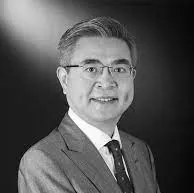
Xiao Geng
Contributing Author
The Future of Global, Regional & National Development Plans Program (GRAND)
Professor Xiao Geng is Chairman of the Hong Kong Institution for International Finance and a Professor and Director of the Research Institute of Maritime Silk-Road at Peking University, HSBC Business School. He previously served as a Vice-President at the Fung Global Institute and the Director of Columbia Global Centers East Asia, as well as Founding Director of the Brookings-Tsinghua Center for Public Policy and Senior Fellow at the Brookings Institution.
Dr Xiao was also an Economics Professor at The University of Hong Kong, Head of Research at the Securities and Futures Commission of Hong Kong, Vice President of the Chinese Economists Society, Independent Director of the Genesis Emerging Markets Fund, Member of the Board of Supervisors at the Shenzhen Development Bank, Faculty Associate at Harvard University, and a Consultant at the World Bank. He holds a BS in Management Sciences from the University of Science and Technology of China and an MA and Ph.D. in Economics from the University of California, Los Angeles.
Copyright: Project Syndicate, 2019.

Clemens Fuest
Contributing Author
The Future of Finance, Banking & Monetary Policy Program (FBM)
Professor Clemens Fuest, President of the Ifo Institute, is a Professor of Economics and Director of the Center for Economic Studies at the University of Munich (LMU) since 2016. Between 2008 and 2013, Fuest was a Professor of Business Taxation at the University of Oxford and Research Director of the Oxford University Centre for Business Taxation, part of the Saïd Business School. In 2008, he served as a member of the Independent Expert Group to the Commission on Scottish Devolution. He was a Member and Chairman of the Council of Economic Advisors at the German Federal Ministry of Finance. From March 2013, Fuest has served as President of the Centre for European Economic Research (ZEW) in Mannheim and professor at the University of Mannheim.
Since 2013, he has also been serving on the advisory board of the Stability Council, a body formed as part of Germany’s national implementation of the European Fiscal Compact. That same year, he joined Henrik Enderlein, Marcel Fratzscher, Jakob von Weizsäcker, and others in founding the Glienicker, a group of pro-European lawyers and economists and political scientists. In 2014, the European Union Council to be part of the High-Level Group on Own Resources, led by Mario Monti, appointed Fuest. Since 2015, he has served as one of two scientific advisers to the Commission on the Minimum Wage at the Federal Ministry of Labor and Social Affairs.
Copyright: Project Syndicate, 2019.
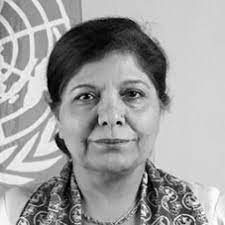
Shamshad Akhtar
Contributing Author
The Future of Finance, Banking & Monetary Policy Program (FBM) The Future of Global, Regional & National Development Plans Program (GRAND)
Shamshad Akhtar, a former Governor of the State Bank of Pakistan, is Chair of the Board of Directors of Karandaaz Pakistan. She is a Pakistani development economist, diplomat, and intellectual who served as the caretaker Finance Minister of Pakistan. She served as the 14th Governor of the State Bank of Pakistan, the first woman to take this position.
Akhtar also served as a Senior Advisor to the then Secretary-General of the United Nations, Ban Ki-moon, and as Vice-President of the World Bank. In December 2013, Akhtar was selected by the UN Secretary-General as Joined Countries Under-Secretary-General and the 10th Chief Secretary of the Monetary and Social Commission for Asia and the Pacific (ESCAP).
Copyright: Project Syndicate, 2019.

Lee Jong-Wha
Contributing Author
The Future of Global, Regional National Development Plans Program (GRAND) The Future of Global Economic Governance (GEG)
Lee Jong-Wha is a Professor of Economics at Korea University. He was Chief Economist at the Asian Development Bank and a Senior Adviser for international economic affairs to former South Korean President Lee Myung-bak. As the head of the Office of Regional Economic Integration (OREI) at the Asian Development Bank (ADB), he set up the institutional framework for regional cooperation and integration of Asian countries.
His significant achievements included the Chiang Mai Initiative Multilateralization (CMIM) and the Asian Bond Markets Initiative (ABMI) that included the ASEAN+3 members. From 2011 to 2013, he served as the Senior Adviser for International Economic Affairs to former president Lee Myung-bak. He also acted as the Korean G-20 Sherpa for the G-20 Summits held in Cannes (2011) and Los Cabos (2012).
Copyright: Project Syndicate, 2019.
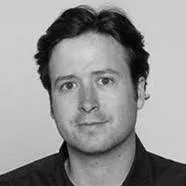
Ulrich Volz
Contributing Author
The Future of Finance, Banking & Monetary Policy Program (FBM)
Ulrich Volz is Director of the SOAS Centre for Sustainable Finance and Reader in Economics at SOAS, University of London. He is a Senior Research Fellow at the German Development Institute.
Copyright: Project Syndicate, 2019.

Samantha Friedlander
Contributing Author
The Future of Global, Regional & National Development Plans Program (GRAND)
Samantha Friedlander is Global Executive Director of the Abdul Latif Jameel Poverty Action Lab (J-PAL) at the Department of Economics, Massachusetts Institute of Technology. Before joining J-PAL, Sam interned and worked with organizations including the International Rescue Committee, Partners in Health, and the Brookings Institution.
Sam holds a Bachelor’s degree in Linguistics from the University of Pennsylvania, where she wrote a thesis on bilingual education. She has a Master’s degree in Development Practice from Emory University, where she concentrated on refugee studies and communications in international development.
Copyright: Project Syndicate, 2019.
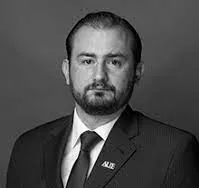
Dr. Renny Castaneda
Non-Resident Fellow
The future of Global Economic Governance (GEG)
Assistant Professor Department Chair Undergraduate Program for the Security and Strategic Studies College of Security and Global Studies American university of the Emirates
Renny Rueda Castañeda holds a PhD from the Faculty of Economy and Social Sciences of the University of Hamburg, Germany (Centrum für Globalisierung und Governance (CGG)) . He is an Economist with studies on Government, Management, and Public Affairs (Externado Colombian University, Columbia University of New York), Economic Analysis (University of Berkeley Extension Prog. USA), and MA on International Law & International Relations (Complutense University of Madrid, Spain). He has also been an economic advisor to the Inter-American Development Bank and has been a lecturer on international economy, international law, international relations, and political science in various Universities in Colombia.
His doctoral research has been published by Taylor & Francis (Uk) and IGI (US), and deals with the construction of norms on scenarios of asymmetric governance, IR, norms and epistemic communities, cognitive governance and late modern market systems. Renny is also the founder of E-codemocracy, an organization that aims to enhance the implementation of decentralization technology and self-governance on autonomous civil interaction. He is an Advisory Board member of the Solonian Democracy Institute, in Ireland. Renny is also a media entrepreneur in Colombia, South America, and has served as an editorial director of numerous projects on political, antiterrorist, and economic journalism. He is fluent in Spanish, English, and German.
Dr Ramiah obtained his PhD from RMIT University specializing in Behavioural Finance. He has supervised numerous PhD students and regularly attracts research funding.
He is the founder of Researchers Sans Frontiere Network, Environmental Finance Cluster at RMIT and his research areas are financial markets, behavioural finance and environmental finance. He introduced the first educational trading room in the state of South Australia.

Dr. Florian Gerth
Non-Resident Fellow
The Future of Banking, Finance & Monterey Policy Program (FBM)
Assistant Professor University of Wollongong
Dr Florian Gerth is Assistant Professor at the University of Wollongong in Dubai (UOWD) and currently teaches International Economics, Applied Financial Modelling and Business Analytics at undergraduate and postgraduate level. He has a keen interest in Macroeconomic Theory, Time-Series Econometrics and Money and Banking.
Prior to joining UOWD, Dr Florian was a Research Assistant and Assistant Lecturer at the University of Kent (UK) and most recently, Research Economist at the Central Bank of Ireland. During his undergraduate studies he worked for SEAT in Spain and Schaeffler Group in Germany on quantitative issues. He obtained his PhD from the University of Kent with his thesis title: “Efficiency and Firm Dynamics during the Global Financial Crisis”. Dr Gerth’s research interests are Quantitative Macroeconomics including Business Cycle Fluctuations, Firm Dynamics, Productivity Analysis and Resource Misallocation.
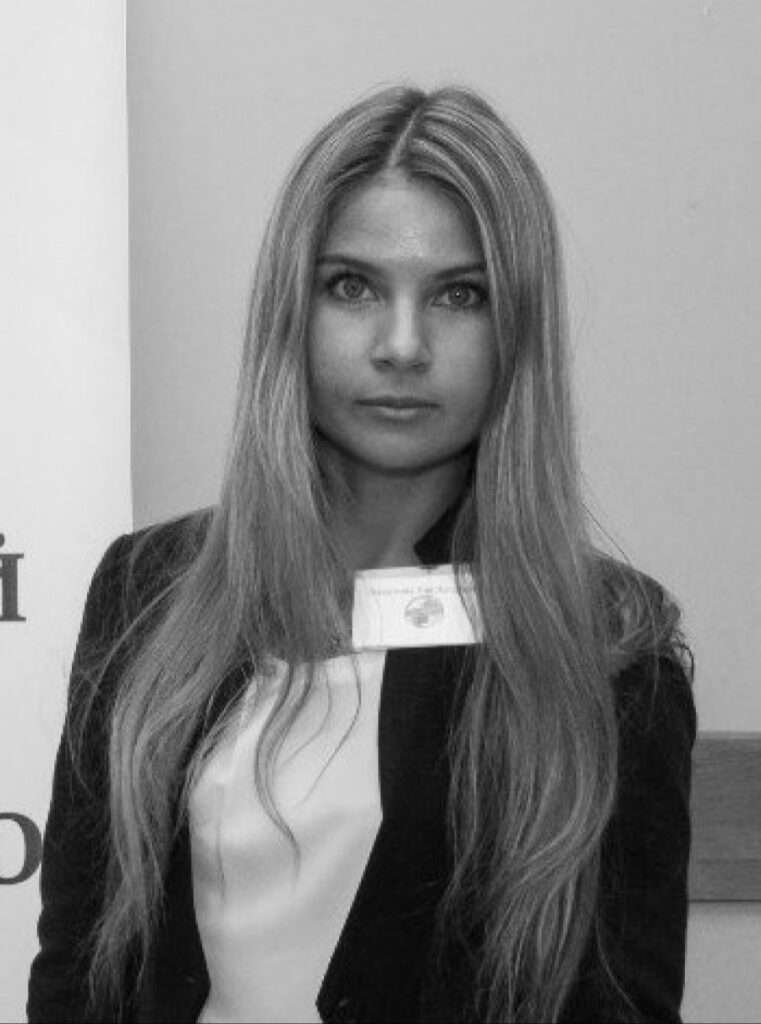
Professor Leksyutina Yana
Non-Resident Fellow
The Future of Banking, Finance & Monterey Policy Program (FBM)
Professor of the Russian Academy of Sciences, Doctor of Sciences, Professor at St. Petersburg State University School of International Relations Department of American Studies
Leksyutina Yana is a Full Professor at the School of International Relations, Saint-Petersburg State University, Russia. Since 2004, she has been a full-time lecturer in the BA Program for International Relations and MA Pacific Studies Program, American Studies Department, Saint-Petersburg State University. She holds a PhD in Political Science (2008), Doctor of Political Sciences Degree (Post-Doctoral degree in Russian academic classification; 2013), an Accreditation to Supervise Research (Docent, 2012), and an honorary title and academic rank of a Russian Academy of Sciences’ Professor (2018). Prof. Leksyutina is an invited professor at the OSCE Academy in Bishkek. She is an Editorial Board member of the “Far Eastern Affairs” Journal (published both in Russian and English), “Russian and Chinese Studies” Journal (published in Russian), and “Society: Politics, Economics, Law” Journal (published in Russian). She is an author of over 130 academic publications including 3 monographs and multiple articles on China’s foreign policy, Sino-Russian relations, Sino-U.S. relations, international relations and security in the Asia Pacific region, BRICS. Her research interests are: China’s foreign policy, Russia-China relations, regional security in the Asia-Pacific, international relations in the Asia-Pacific, U.S. foreign policy in the Asia-Pacific, global governance.

Natia Seskuria
Contributing Author
Future of Gulf & Global Development & Security Program at CSGEF. Associate Fellow, Royal United Services Institute (RUSI). Advisor, The Royal Institute of International Affairs, Chatham House.
Natia Seskuria is an Associate Fellow at the Royal United Services Institute (RUSI). She is also a Founder and Executive Director of the Regional Institute for Security Studies (RISS), a Tbilisi-based think tank and an official partner of RUSI. Additionally, Natia holds an advisory position at Chatham House and is a lecturer in Russian politics.
She has a broad experience in policy-making, strategic foresight and provides analysis on defence and security issues. In the past, she served at the Office of the National Security Council of Georgia and the Ministry of Defence of Georgia.
Natia’s research focuses on Russia’s domestic and foreign policy, in particular Russia’s relations with its neighbours, strategic approach to occupied regions, relations with the West and the use of active measures. She also specialises in conflicts and security in the South Caucasus and the Black Sea region and regularly contributes to leading academic journals and online magazines. Natia is a frequent commentator on major media outlets including BBC, France 24 and CNN.
Prior to her current roles, Natia was a Black Sea Fellow at the Middle East Institute (MEI). She also worked for the Foreign Editor of The Sunday Times of London, and in the International Security Studies Department at RUSI, where her work focused on security dynamics in Russia and Eurasia. Additionally, Natia has acted as an independent consultant in London, advising private sector companies on political, strategic and operational risks.
Natia holds an MA in Politics, Security and Integration and a BA (Hons) in Politics and East European Studies from the School of Slavonic and East European Studies at University College London (UCL).
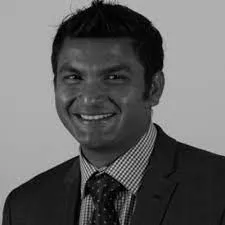
Dr. Vikash Ramiah
Non-Resident Fellow
The Future of Banking, Finance & Monterey Policy Program (FBM)
The Future of Energy Program (PFE)
Assistant Professor University of Wollongong
Dr Vikash Ramiah is an Associate Professor at the University of Wollongong in Dubai, and currently teaches International Financial management on undergraduate level and Portfolio Simulation and Financial Strategy on postgraduate level. In addition, he supervises PhD students and has a keen interest in Applied Finance.Vikash uses a variety of teaching techniques which includes play based pedagogy (tactile/kinaesthetic style, digital network learning and connectivism theory), andragogy (cognitive theories and constructivism), research based approach and inquiry-based learning.
Prior to joining UOWD, Dr Ramiah has been teaching economics and finance courses at UNISA, RMIT, University of Melbourne, La Trobe University and Australian Catholic University. He has received numerous awards for outstanding performance in teaching, research and supervision.
Previously he was a junior auditor at H&A Consulting, manager at Integrate PTY Limited, quantitative analyst at ANZ, Investment Banking Division, worked as a consultant for the Australian Stock Exchange and worked in collaboration with the Finance and Treasury Association of Australia and the Australian Centre for Financial Studies. He was an elected board member of the RMIT University Business Board, program Director of Open Universities Australia and acting Board member at the Australian Centre for Financial Studies.
He has published in academic journals such as Journal of Banking and Finance, International Review of Finance, Journal of Behavioural Finance, European Journal of Finance, Applied Economics, International Review of Financial Analysis, Pacific Basin Finance Journal and Journal of International Financial Market, Institution and Money), industry reports, books, book chapters, and conference papers. His paper on Brexit is one of the top ten most read paper in Applied Economics. He is an expert reviewer for several finance journals and for the Mauritius Research Council and also serves on the editorial board of finance journals.
Dr Ramiah obtained his PhD from RMIT University specialising in Behavioural Finance. He has supervised numerous PhD students and regularly attracts research funding.
He is the founder of Researchers Sans Frontiere Network, Environmental Finance Cluster at RMIT and his research areas are financial markets, behavioural finance and environmental finance. He introduced the first educational trading room in the state of South Australia.
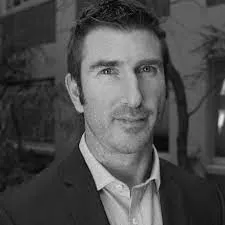
Dr. Damien Wallace
Non-Resident Fellow
The Future of Banking, Finance & Monterey Policy Program (FBM)
Lecturer in Finance UniSA Business, University of South Australia
Damien Wallace is a Lecturer in Finance within UniSA Business at the University of South Australia. He coordinates and teaches undergraduate finance courses and research primarily in market microstructure and equity pricing. Damien holds a Bachelor of Applied Finance and a Bachelor of Business (Honours), both from the University of South Australia. He holds a PhD in finance from the University of South Australia.
Damien’s research interests utilize Exchange Traded Funds (ETFs) to focus on price discovery and the impacts on trading activity on market efficiency, the role of US market prices in linked foreign markets, risks associated with fixed income ETFs in a changing monetary policy environment, upcoming challenges in the ETF product space and environmental finance.

Dr. Krishna Reddy
Non-Resident Fellow
The Future of Money and Currency Program (FMC)
Postgraduate Research Supervisor Faculty of Business, Design and Service Industries Toi Ohomai Institute of Technology Bay Of Plenty, New Zealand Visiting International Professor School of Business and Economics University of Muenster, Germany
Dr. Krishna Reddy currently works in the discipline of Finance. Dr Krishna Reddy is a Senior Academic Staff Member (Postgraduate Business) in the Faculty of Business, Design and Service Industries. Before his role at Toi Ohomai, he was an Associate Professor and the Head of Department (Finance) at the Australia Institute of Business in Adelaide, South Australia. He is also a Visiting International Professor at the School of Business and Economics, University of Muenster, Muenster, Germany, and Indian Institute of Management – Trichy, India. Dr. Reddy research in Financial Economics. Dr. Reddy was an inaugural Board of Director for ITFNZ and Board of Trustees for Mahia Mai A Whai Tara Trust and Taranaki Safer Family Center.
He has taught Bank Management at Massey University, Economics at the International Pacific College, Hospitality Accounting and Finance at the Pacific International Hotel Management School and the Course Convenor for Personal Financial Planning, Corporate Finance, Finance Theory and Corporate Policy, Corporate Restructuring and Governance, and Advanced Corporate Finance at the University of Waikato.
He has also worked in banks in Fiji and New Zealand and sat on several community-based health-organizations as a board of trustee’s member.
He is the founder of Researchers Sans Frontier Network, Environmental Finance Cluster at RMIT and his research areas are financial markets, behavioral finance, and environmental finance. He introduced the first educational trading room in the state of South Australia.
His research interests include corporate governance, corporate finance, portfolio management, personal financial planning, mergers and acquisitions and small business finance.
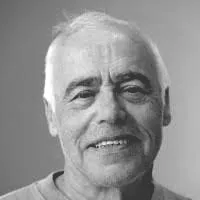
Dr. David J. Bentolila
Non-Resident Fellow
The Future of Global Supply Chain (GSC&T)
Head, MA Program, Logistics and Global Supply Chain Rubin Academic Center
Dr. David J. Bentolila is the Head of the Graduate program of Logistics and Global Supply Chain in the Ruppin Academic Center in Israel. He has a Doctorate (Ph.D) in Development Social Sciences from the High School of Social Sciences in Paris (E.H.E.S.S). He is graduated in Industrial and Management Engineering from the Technological Institute (Technion) in Haifa.
He has been the Head of management division in the interdisciplinary department in the academic college of Zefat and lecturer in other academic universities and colleges. His main areas of interest are logistics, supply chain, entrepreneurship, innovation and quality. He initiated the establishment of the Program for Quality and Excellence in Northern Israel, enhancing the regional collaboration between small and medium regional enterprises, big enterprises and academic colleges. He has been the Managing Director of the management consultancy firm, Bento Consultants Ltd and leaded many projects in industry and services. He has long experience in leading development projects in many development countries in Africa, Asia and Latin America.
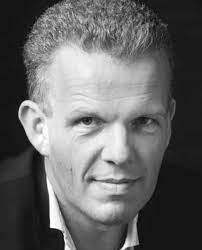
Professor Cyril Widdershoven
Non-Resident Fellow
The Future of Global Supply Chain (GSC&T)
Founder/Owner/Geopolitical-Risk-Economics and Oil Gas Partner VEROCY
Professor Cyril Widdershoven is Geopolitical disruptive thinker, focused on Commodities, Geopolitics, MENA and Security. Assessing investments, FDI, SWFs, Key-Stakeholders, and power players in MENA, EastMed and Central Asia. Professor Widdershoven collaborates with the Regional Security Initiative at the Middle East Directions Program of the Robert Schuman Centre for Advanced Studies. Florence, Italy. He is also non-resident Fellow at the Payne Institute, Colorado School of Mines, Denver, USA.
Dr. Cyril Widdershoven is a veteran global energy market expert and founder of Verocy. He holds several advisory positions at various international think tanks and Western energy firms. Widdershoven, with his regional expertise in Africa and the Middle East, oversees the Mediterranean Energy Political Risk Consultancy. Across the MENA region, he has been heavily involved in the oil and gas sectors throughout his career, holding positions at Capgemini Consulting (principal consultant Centre of Excellence Oil and Gas International (Calgary, Canada), Deloitte Financial Advisory Services (senior manager, Oil & Gas), and as senior financial analyst Oil & Gas Sector FDA, where he managed and advised the oil and gas department on equity and bond markets.
Widdershoven has led energy publications, including North Africa Oil and Gas Magazine (now called Petroleum Africa) in Egypt, the Middle East Oil Gas Newsletter and Africa Oil Newsletter at Newsbase (U.K.). Over the span of several decades he has lived and worked in Egypt, Lebanon, Jordan, Sudan, Iraq, and the UAE, and also taken on extended projects for clients in Oman, Iran, Syria, Tunisia, and Turkey. Widdershoven earned his post graduate degrees at King’s College, University of London, Department of War Studies, and an MA in Middle East studies at the University of Nijmegen, Netherland.
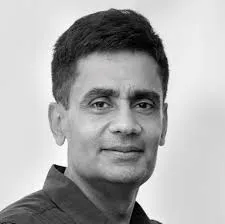
Iqbal Dhaliwal
Senior Non-Resident Fellow
The Future of Global, Regional & National Development Plans Program (GRAND)
Professor Iqbal Dhaliwal is Global Executive Director of the Abdul Latif Jameel Poverty Action Lab (J-PAL) at the Department of Economics, Massachusetts Institute of Technology. Based at the Economics Department of the Massachusetts Institute of Technology (MIT), Iqbal has held several positions at J-PAL, including Deputy Executive Director (2013–2017), founding Director of the Policy and Communications group (2009–2017), interim Director of the Research, Education, and Training vertical (2016–2017), and Co-Chair of the Governance Initiative (2010–2014).
He is the co-author with Rema Hanna (Harvard) of an extensive, five-district randomized evaluation on improving health outcomes and service provider attendance in rural India. Before joining J-PAL in 2009, Iqbal was a director in the economic analysis practice of a consulting firm in Boston. He managed numerous engagements involving antitrust issues, regulation, and strategy; before that, an analyst in a strategy consulting firm outside of Washington D.C.
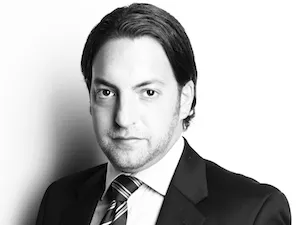
Daniel Schatz
Non-Resident Fellow
The Future of Economic Powers & Geoeconomics Program (EP&G)
Dr. Daniel Schatz is a Visiting Scholar at Georgetown University, a Non-Resident Fellow at TRENDS Research & Advisory in Abu Dhabi and an International Security Program Fellow with New America in Washington D.C. Dr. Schatz holds a doctorate in Political Science from Humboldt University of Berlin. He has served as a Visiting Scholar at Harvard University, Stanford University, Columbia University and New York University. Dr. Schatz’s articles, expert commentary and opinion pieces on contemporary international affairs have appeared in such leading US and international publications and outlets as the New York Times, the Economist, Newsweek, CNN, NBC News, Die Welt and the Wall Street Journal, as well as in peer-reviewed scholarly journals.

Robert Skidelsky
Contributing Author
The Future of Finance, Banking & Monterey Program (FBM)
Robert Skidelsky, a member of the British House of Lords, is Professor Emeritus of Political Economy at Warwick University. The author of a three-volume biography of John Maynard Keynes, he began his political career in the Labour party, became the Conservative Party’s spokesman for Treasury affairs in the House of Lords, and was eventually forced out of the Conservative Party for his opposition to NATO’s intervention in Kosovo in 1999.
He is also the author of Britain in the 20th Century: A Success? (Vintage, 2014), editor of The Essential Keynes (Penguin Classics, 2015), and co-editor of Who Runs the Economy? (Palgrave, 2016) and Austerity Vs Stimulus (Palgrave, 2017).
He has recently written and filmed a series of lectures on the History and Philosophy of Economics which will be made available as an open online course in partnership with the Institute for New Economics Thinking.
His latest book is Money and Government, which will be published by Allen Lane in September 2018. He is now working on a book about automation and the future of work.
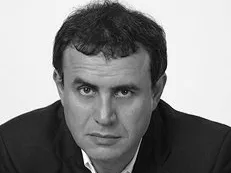
Nouriel Roubini
Contributing Author
The Future of Finance, Banking & Monterey Program (FBM)
Nourie Roubini, Chairman of Roubini Macro Associates, is a former senior economist for international affairs in the White House’s Council of Economic Advisers during the Clinton Administration. He has worked for the International Monetary Fund, the US Federal Reserve, and the World Bank, and was Professor of Economics at New York University’s Stern School of Business. His website is NourielRoubini.com, and he is the host of NourielToday.com.
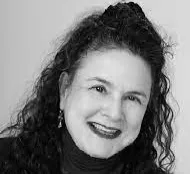
Dalia Marin
Contributing Author
The Future of Knowledge & Innovation Program (KIP)
The Future of Global Economic security (GES): Enterprise Security
Dalia Marin, Professor of International Economics at the Technical University of Munich’s School of Management, is a research fellow at the Centre for Economic Policy Research.
Dalia Marin holds the Chair in International Economics at the University of Munich. She obtained her Habilitation in Economics from Vienna University of Economics in 1992; until 1994 she was Assistant Professor at the Institute for Advanced Studies in Vienna and Associate Professor at Humboldt University Berlin (1994-1998). She has been visiting professor at Harvard University, Stanford University, the Stern School of Business, New York University, International Monetary Fund, National Bureau of Economic Research, Mass., European University Institute, and at the Wissenschaftszentrum Berlin.
She is Senior Research Fellow at Bruegel, Brussels, a European think tank on Economic Policy in Europe, Fellow at the European Economic Association, Research Fellow of the Centre for Economic Policy Research (CEPR), London, Member of the International Trade and Organization Working Group of the National Bureau of Economic Research (NBER), Cambridge, Member of the Panel of Economic Policy and of the Council of the European Economic Association. She has been Team Leader at the Russian European Center for Economic Policy in Moscow (1998-2000) and has acted as a consultant for international organizations such as the European Bank for Reconstruction and Development (EBRD), London, and the International Monetary Fund.
Her research interests are in the area of international economics, corporate finance and the organization of the firm, and in emerging market economies.

Alicia Sasser Modestino
Contributing Author
The Future of Economic Anthropology Program (FEA)
Alicia Sasser Modestino is an associate professor at Northeastern University.
Dr. Modestino is an Associate Professor with appointments in the School of Public Policy and Urban Affairs and the Department of Economics at Northeastern University. Since 2015, Dr. Modestino has also served as the Associate Director of the Dukakis Center for Urban and Regional Policy. She is also a nonresident fellow at the Brookings Metropolitan Policy Program and an invited researcher of the Abdul Latif Jameel Poverty Action Lab (J-PAL) at MIT. Previously, Modestino was a Senior Economist at the Federal Reserve Bank of Boston where she led numerous research projects on regional economic and policy issues.
Dr. Modestino’s current research focuses on labor and health economics including changing skill requirements, youth development, healthcare, housing, and migration. Her work has been funded by the William T. Grant Foundation, the Russell Sage Foundation, the National Science Foundation, the Boston Foundation, the National Security Agency (NSA), and J-PAL. She has published in peer-reviewed publications including Review of Economics and Statistics, Journal of Human Resources, Labour Economics, Health Affairs, Journal of Policy Analysis and Management, and Regional Science and Urban Economics. Dr. Modestino’s research has been covered extensively in the media including the Wall Street Journal, the Washington Post, Bloomberg, the Christian Science Monitor, the Boston Globe, Politico, and Vox. She has appeared on NPR’s On Point, WBUR’s Radio Boston, WCVB’s CityLine, NBC News and Fox25 News.
Modestino holds both a Master’s degree and a Ph.D. in Economics from Harvard University, where she also served as a doctoral fellow in the Inequality and Social Policy Program at the Kennedy School of Government.

Tommaso Faccio
Contributing Author
The Future of Finance, Banking & Monterey Program (FBM)
Future of Global Economic Security Program (GES)
Tommaso Faccio is Lecturer in Accounting at Nottingham University Business School and Head of the Secretariat of the Independent Commission for the Reform of International Corporate Taxation. His research interests include international tax, transfer pricing, tax treaties and tax avoidance.
Until July 2014, he was a Transfer Pricing Senior Manager in the Deloitte LLP International Tax team and has significant experience advising multinationals on complex international tax issues, particularly in the area of Transfer Pricing and Permanent Establishment, first at Ernst and Young LLP and then at Deloitte LLP. He convenes undergraduate teaching on principles of taxation, tax compliance, business law and advanced financial reporting.
Tommaso writes regularly about international taxation and tax avoidance and is a contributor to the US magazine Tax Notes International.
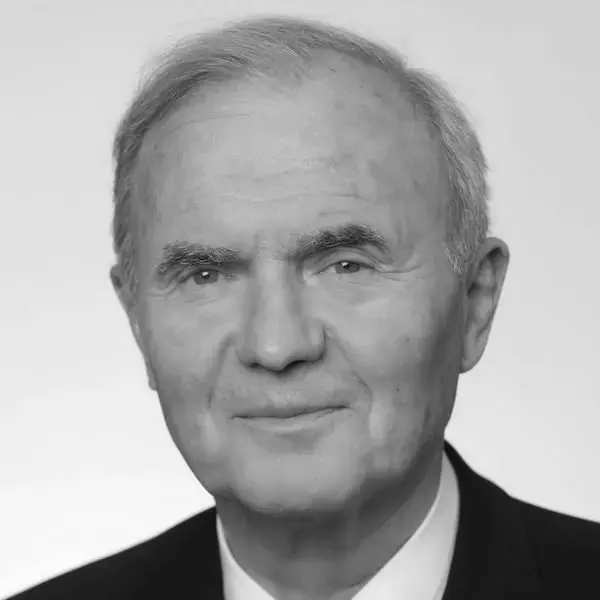
Otmar Issing
Contributing Author
The Future of Finance, Banking & Monterey Program (FBM)
Otmar Issing, former chief economist and member of the board of the European Central Bank, is President of the Center for Financial Studies at Goethe University, Frankfurt. From 1998 to 2006, Prof. Issing was a Member of the Executive Board of the European Central Bank (ECB), responsible for the Directorates General Economics and Research. Until 1998 he was a Member of the Board of the Deutsche Bundesbank with a seat on the Central Bank Council. From 1988 to 1990, he was a Member of the German Council of Economic Experts. At the University of Würzburg, Prof. Issing was Professor of Economics, Monetary Affairs and International Economic Relations (1973-1990). From 1967-1973 he held a full professorship at the University of Erlangen-Nuremberg and was Director of the Institute for International Economic Relations.
Prof. Issing was a Member of the G20 Eminent Persons Group on Global Financial Governance, which was formally established by G20 Finance Ministers and Central Bank Governors for the period of 2017-2018. He chaired the Advisory Council on a New Financial Order appointed by German Chancellor Angela Merkel (2008-2010). He also was a member of the High Level Group of the European Commission chaired by J. De Larosière (2008-2010), an International Advisor to Goldman Sachs (2007-2018), and served on the Supervisory Boards of Nürnberger Lebensversicherung AG (2006-2018) and Fürst Fugger Privatbank (2007-2018).
In addition to numerous articles in scientific journals and periodicals, Prof. Issing’s publications include two textbooks, Einführung in die Geldtheorie (“Introduction to Monetary Theory”), fifteenth edition 2011, and Einführung in die Geldpolitik (“Introduction to Monetary Policy”), sixth edition 1996. His book The Birth of the Euro (“Der Euro – Geburt, Erfolg, Zukunft”) was published in German and English in 2008, followed by a Chinese edition in 2011. His book “The Long Journey of Central Bank Communication” – From Karl Brunner Distinguished Lecture Series, was published by MIT Press in September 2019. Furthermore, in 2019 his book Stabiles Geld – eine Illusion? Alternative Währungssysteme – Hayeks Fundamentalkritik – Unabhängigkeit der Notenbanken (Stable Money – An Illusion? Alternative Currency Systems – Hayek’s Fundamental Criticism – Independence of the Central Banks) was published by the Walter Eucken Institute.
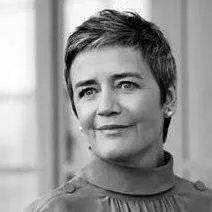
Margrethe Vestager
Contributing Author
The Future AI & Digital Economy Program (FAIE)
Margrethe Vestager, Executive Vice-President of the European Commission for a Europe Fit for the Digital Age, is EU Commissioner for Competition.
Prior to joining the European Commission, she served in the Danish governments of Poul Nyrup Rasmussen as Minister for Ecclesiastical Affairs from 1998 to 2000 and Minister of Education from 1998 to 2001. She was leader of the Social Liberals from 2007 to 2014, and served as Minister of Economic Affairs and the Interior under Helle Thorning-Schmidt from 2011 to 2014.
Following the 2014 European Parliament election, Vestager was nominated as Denmark’s European Commissioner in the Juncker Commission, becoming Commissioner for Competition. In the 2019 European Parliament election, she was one of ALDE’s seven lead candidates. After the election, Vestager was nominated as the Renew Europe group’s candidate for President of the European Commission. After the election of Ursula von der Leyen as President, Vestager was re-nominated as Denmark’s Commissioner. She retained her Competition portfolio while also becoming one of the Commission’s three Executive Vice Presidents, with responsibility for “A Europe Fit for the Digital Age”.
In her capacity as Commissioner for Competition she has been described as the world’s most famous regulator”.

Michael Spence
Contributing Author
The Future of Global, Regional & National Development Plans Program (GRAND)
Michael Spence, a Nobel laureate in economics, is Professor of Economics Emeritus and a former dean of the Graduate School of Business at Stanford University. He is Senior Fellow at the Hoover Institution, serves on the Academic Committee at Luohan Academy, and co-chairs the Advisory Board of the Asia Global Institute. He was chairman of the independent Commission on Growth and Development, an international body that from 2006-10 analyzed opportunities for global economic growth, and is the author of The Next Convergence: The Future of Economic Growth in a Multispeed World.

Jose Antonio Ocampo
Contributing Author
The Future of Finance, Banking & Monterey Program (FBM)
Future of Global Economic Security Program (GES)
Global, Regional & National Development Plans Program (GRAND)
Jose Antonio Ocampo, a former finance minister of Colombia and United Nations under-secretary general, is a professor at Columbia University and Chair of the Independent Commission for the Reform of International Corporate Taxation. He is the author of Resetting the International Monetary (Non)System and co-author (with Luis Bértola) of The Economic Development of Latin America since Independence.
He is also the director of the Economic and Political Development Concentration in the School of International and Public Affairs, Member of the Committee on Global Thought and co-President of the Initiative for Policy Dialogue at Columbia University. He is also the Chair of the Committee for Development Policy, an expert committee of the United Nations Economic and Social Council (ECOSOC). In 2012–2013 he chaired the panel created by the IMF Board to review the activities of the IMF’s Independent Evaluation Office; in 2008–2010, he served as co-director of the UNDP/OAS Project on “Agenda for a Citizens’ Democracy in Latin America”; and in 2009 a Member of the Commission of Experts of the UN General Assembly on Reforms of the International Monetary and Financial System.
Prior to his appointment, Ocampo served in a number of positions in the United Nations and the Government of Colombia, most notably as United Nations Under-Secretary General for Economic and Social Affairs; Executive Secretary of the Economic Commission for Latin America and the Caribbean (ECLAC); Minister of Finance and Public Credit, Chairman of the Board of Banco del República (Central Bank of Colombia); Director of the National Planning Department (Minister of Planning); Minister of Agriculture and Rural Development, and Executive Director of FEDESARROLLO.
Ocampo has published extensively on macroeconomic theory and policy, international financial issues, economic and social development, international trade, and Colombian and Latin American economic history.
Ocampo received his BA in economics and sociology from the University of Notre Dame in 1972 and his PhD in economics from Yale University in 1976. He served as Professor of Economics at Universidad de los Andes and of Economic History at the National University of Colombia, and Visiting Fellow at Universities of Cambridge, Oxford and Yale. He has received a number of personal honors and distinctions, including the 2012 Jaume Vicens Vives Prize of the Spanish Association of Economic History for the best book on Spanish or Latin American economic history, the 2008 Leontief Prize for Advancing the Frontiers of Economic Thought and the 1988 “Alejandro Angel Es
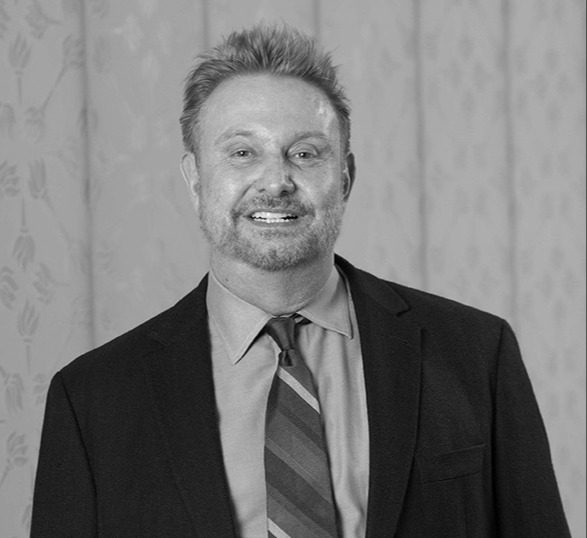
Professor John Hams
Contributing Author
The Future of Knowledge & Innovation Program (KIP)
John Ham is a Professor of Economics at New York University in Abu Dhabi and Global Professor of Economics at the Wagner School of Public Service at NYU New York. He received his BA from the University of Toronto and his PhD from Princeton University. John Ham is a Professor of Economics at New York University in Abu Dhabi and Global Professor of Economics at the Wagner School of Public Service at NYU New York. He received his BA from the University of Toronto and his PhD from Princeton University. He has received several grants from the SSHRC (Canada), NSF (US), NIH (US), and SSRC (Singapore). He served on the NSF (US) review panel for Economics. He has published in many good economics journals, including the American Economic Review, Econometrica, The Journal of Political Economy and The Review of Economic Studies. He started his academic teaching career at the University of Toronto and has held tenured positions at the University of Pittsburgh, Ohio State University, the University of Southern California, the University of Maryland and the National University of Singapore.
